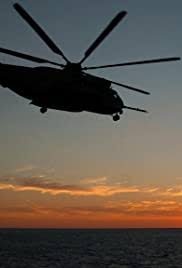

We think we know all about the Iranian hostage crisis. In 1979, a group of student revolutionaries stormed the American Embassy in Tehran, Iran, and took 52 Americans hostage, in protest of the Americans’ harboring of the Shah, the deposed Iranian despot who was being treated for cancer in an American hospital after having fled the revolution. These Americans were held for 444 days and the story gripped the country—and the world. Nightline, the perennial nightly television news program, was born out of the nightly coverage of the crisis that newsman Ted Koppel provided. Argo, a film about a group of American Embassy workers who barely escaped capture during the siege, won the Oscar for Best Picture in 2012. The American people know about the hostage crisis. What they don’t know is the whole story.
Desert One is primarily about the attempted military mission to rescue the hostages that went horribly wrong and failed. This is the part of the hostage story that most Americans don’t know about. And why would they—it’s not really something to be proud of. Or is it? Kopple covers every angle of the story and the history in this gripping documentary that combines incredible archival footage and recordings with interviews of some surviving hostages and members of Delta Force, the unit that attempted the rescue. Most impactful of all, however, is an interview with former President Jimmy Carter, who rarely discusses the failed mission in public. The failure to rescue the hostages was generally accepted to be the issue that cost Carter re-election in 1980, but, for Carter, it had nothing to do with politics and everything to do with his oath of office and his promises to the American people and to his own sense of duty and morality.
The interviews are incredibly powerful and moving, and you can’t help but be awed at the scope and depth of the patriotism, heroism and loss—for both the hostages and the soldiers. But what is most compelling about Desert One is how it tells the whole story, not just the heroic one. Kopple tells the story of the relationship between Iran and the United States, details the complicated history of the Iranian people and their leaders and blurs our preconceived notion that American influence overseas is always a righteous one. It is an even-handed history lesson, shining the light on both sides, for good or bad, a true document of history.
But it is in the telling of the rescue attempt itself where Desert One really hits home. Truth be told, I was there in Iran, right before the revolution. My father worked in the Embassy as a member of the American Foreign Service. When things started to get dicey, my mother and I were evacuated, along with all the other American woman and children, in December, 1978. My father stayed behind, but managed to get out in February, 1979. The Embassy was stormed in November. My father knew most of the hostages, including Michael Matrinko, interviewed in the film, who was a good friend and colleague. This film really hit home for me, but what was so incredible about it is the fact that even though I was so much closer to this time in history than the average American, even I didn’t know most of the details of the rescue mission. We, as Americans, just don’t like to talk about our failures too often. And that’s what makes Desert One so indelible and a must-see for everyone, especially Americans. It is a document of history, a history that our country can and should learn from, in every way. And it is a testament to bravery and heroism and to the American ideal that we hold up as a beacon.
This review is from AFI FEST 2019. No release is yet set but it will be distributed by the History Channel.
This article was originally published on AwardsWatch.com.
